There are no bigger names in the history and development of modern crime scene investigation than French investigator Edmond Locard and his Austrian counterpart Hans Gross. These two men shaped the development of crime scene investigation and even today their techniques create the cornerstone of forensic science. Locard’s Exchange Principle underlies every forensic technique.

EDMOND LOCARD

HANS GROSS
They were also great fans of Sir Arthur Conan Doyle’s Sherlock Holmes and R. Austin Freeman’s Dr. John Evelyn Thorndyke. Locard even suggested that students of police procedure read the Sherlock Holmes stories and learn from his techniques.

Both the real-life investigators and the fictional ones had one thing in common: the careful and meticulous approach to any crime scene, taking care to collect all useful evidence, while not damaging or contaminating it.
In my book Forensics For Dummies, the methods and techniques used to evaluate a crime scene and collect evidence are explained in great detail. Check it out if you want to know more about the techniques that saw their origin more than 100 years ago.







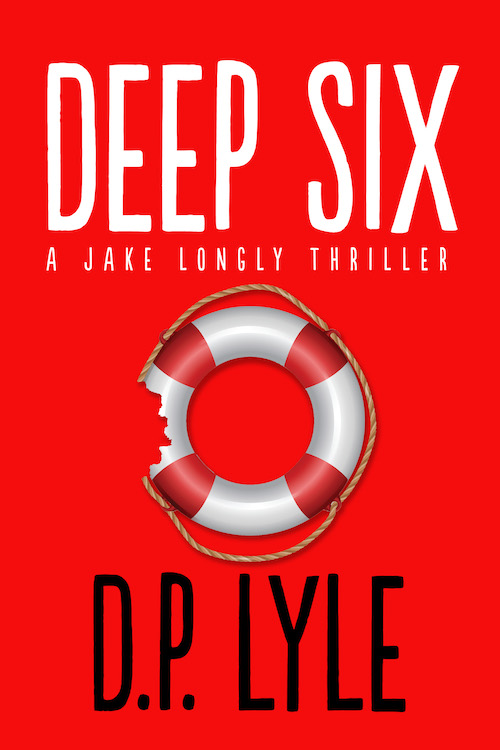





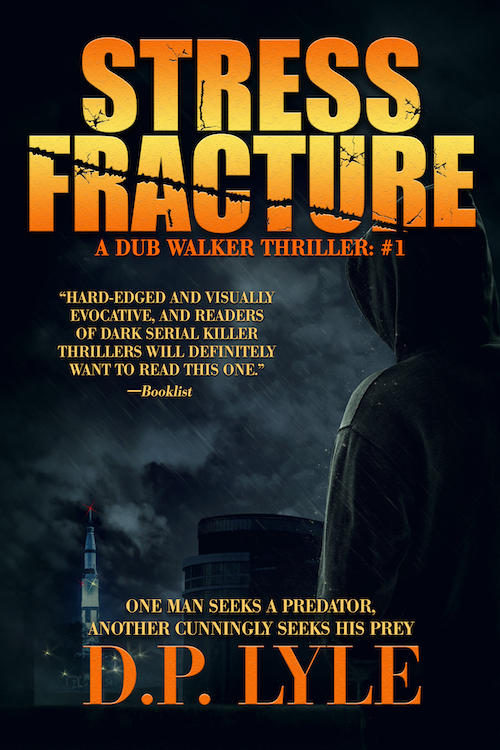






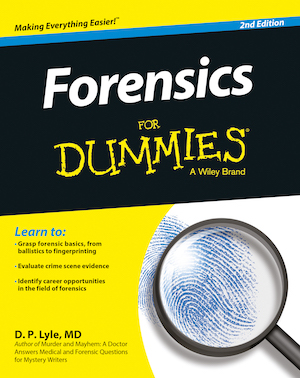

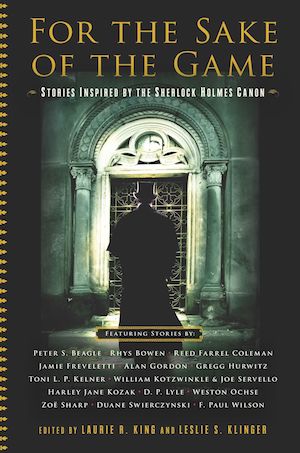

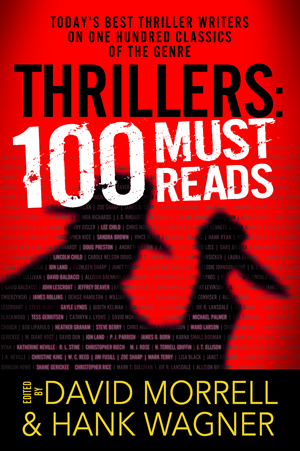

renxkyoko
August 10, 2017 at 10:45 am
I love reading your stuff here. I’m a Forensics Biologist.
LikeLike
D.P. Lyle, MD
August 10, 2017 at 10:47 am
I’m glad you like it. Thanks.
LikeLike
E. J. Wagner
September 3, 2017 at 2:14 pm
Hi Doug-I’m always happy to see these gentlemen receive attention but I use take issue with the implication that Hans Gross was an admirer of Sherlock Holmes. Please see following from my blog
EJdissectingroom
The Man Who Ignored Sherlock Holmes;An untold tale
( A version of this article appeared in the spring 2015 edition of “Canadian Holmes”
By E.J. Wagner
Sherlockians revel in speculating about the untold tales tantalizingly mentioned en passant in the Canon — ‘The Giant Rat of Sumatra’ ‘The Politician, the Light House and the Trained Cormorant,’ ‘The Trepoff Murder in Odessa’ and ‘The Notorious Canary Trainer’ have all received literary attention.
But there is, sadly, one untold tale which is grossly neglected: ‘The Story of the Man Who Ignored Sherlock Holmes.’
In 1893, the very year in which the British population was devastated by news of Sherlock Holmes’s untimely tumble over Reichenbach Falls, Hans Gustav Adolf Gross, an examining jurist as yet little known outside of Austria, published a book.
The massive 900-page tome was lumbered with the unprepossessing title of Handbuch für Untersuchungsrichter als System der Kriminalistik (in English: Handbook for Examining Magistrates as a System of Criminology).
And although there is no hard evidence that its author was familiar with the Holmes stories in 1893 (and indeed in that year Mr. Holmes had not yet made his debut in the German language), the philosophy of the Handbuch reads as though it sprang directly from the brain of the GreatDetective.
Gross wrote extensively about the collection and study of dust and soil, the importance of footprints and the use of disguises. He also emphasized the importance of careful preservation and objective interpretation of evidence found at crime scenes.
“The trace of a crime discovered and turned to good account, a correct sketch be it ever so simple, a microscopic slide, a deciphered correspondence, a photograph of a person or object, a tattooing, a restored piece of burnt paper, a careful survey, a thousand more material things are all examples of incorruptible, disinterested, and enduring testimony from which mistaken, inaccurate, and biased perceptions, as well as evil intention, perjury, and unlawful co-operation, are excluded…….” he wrote.
He explained in detail the importance of understanding chemistry, fingerprinting, medicine and anatomy in the solution of criminous puzzles. He delved into ballistics and developed myriad methods of detecting malingering. These concepts were new and startling in 19th-century Austria. Police work at that time and place was largely undertaken by former military men, whose physical ability to quell suspects was unrestrained by any education in a scientific approach to criminal investigation. It therefore became the responsibility of the examining justices to direct the police in the discovery of culpable parties and of appropriate evidence.
Examining justices, as a rule, possessed legal training, but little scientificknowledge, and were usually appointed to their positions for political reasons.
Convictions were the result of whim and emotion rather than reason. Gross was formally in possession of a law degree and was also gifted with an unusually broad curiosity and an intensely analytical mind. He wasconvinced that research into both criminal psychology and physical scienceswere needed to bring order to a chaotic system. Receiving an appointment as an examining magistrate, he proceeded to apply his experience as a judge to the creation of a new approach to criminal justice.
His handbook surpassed anything that had been previously written on police investigation and by 1908 had been translated into many languages, including English. He lectured widely, in Vienna as well as his birthplace, Graz. One of his students was Franz Kafka, who clearly benefited from exposure to the labyrinthine legal world.
Gross was appointed professor of criminology at Graz University and in 1912 founded the Hans Gross Museum of Criminology in that city. He was every inch a scholar, using his pen and his influence to promote the same theories and ideals that Conan Doyle expressed through the fictional medium of Sherlock Holmes.
It is clear that Doyle was aware of Gross’s work. ‘The Problem of Thor Bridge,’ published in The Strand Magazine in 1922, replicates a case of Gross in which a suicide is disguised as murder. Holmes solves the case,investigating it just as Gross had presented it But no evidence has yet come to light that Gross, in turn, ever mentioned his fictional counterpart.
The question is why? The Holmes stories had become world famous. It is hard to believe that none of Gross’s contemporaries had ever mentioned the Great Detective to the famous jurist.
As a rule, Gross was most generous in praising his contemporaries in criminal investigation. He held Georg Popp, the specialist in microscopic trace evidence, in high esteem, and said so frequently. He admired as well Cesare Lombroso, the anthropologist, and quoted him often.
Gross wrote with delighted approval of the investigators in Vienna who solved the asphyxia murder of a prostitute using an early form of profiling.
In his chapter on criminal psychology, Gross explained admiringly that the police used their knowledge that a local man habitually brought two chickens with him when he visited ladies of the evening. The poultry bearing client would strangle the birds at the climactic moment.
(He was known,unsurprisingly, as ‘The Chicken Man’). Faced with a dead prostitute whose purse was untouched, police surmised that the Chicken Man’s sadistic tendencies had escalated to focus on humans. Questioned, the Chicken Man confessed.
To Gross, this was evidence of the important role of psychology in police work, and he was happy to applaud the detectives. He frequently mentioned his admiration for Edmund Locard, the physician/lawyer who founded the first police laboratory in France.
Locard’s admiration for Holmes was well known. Indeed, he famously advised his students to read the Holmes stories as part of their scientific education.
But Hans Gross remained remarkably reticent on the subject of Holmes. Like that of the dog that did nothing in the nighttime, his silence piques the imagination.
I suggest that the reason for this obvious omission was Gross’s son, Otto.
Otto, born in 1877, inherited his father’s intelligence but not his discipline and diligence. Achieving a medical degree, he did not begin a practice but set out at once for South America, where he acquired, among other things, a passion for drugs. Cocaine became a particular favourite.
His addiction grew serious enough for him to travel to Zurich, and attempt a cure through the good offices of C.G. Jung. Jung analyzed Otto; Otto, by now fascinated by the unconscious, in turn analyzed Jung. Jung retaliated by referring Otto to Freud. Freud, uneasy with Otto’s interest in attaching politics to analysis, withdrew, clutching a cigar.
Otto embraced political anarchy, sexual freedom, the Dada art movement, more drugs, psychoanalysis and a number of ladies, two of whom committed suicide.
Otto’s more or less romantic relationships produced four children. Two of the progeny were named Peter. (Fortunately, the two had different mothers, thus limiting confusion at family gatherings ) Hans Gross took legal measures to have his son institutionalized for treatment. Otto sued his father for his release. The legal situation grew increasingly complex and, well, Kafkaesque.
Gross considered men like his son degenerate, and believed that if they would not or could not be treated, they should be deported. Africa, he considered, might be an appropriate destination.
Considering the anguish Otto’s addictions must have caused his disciplined papa, Holmes’s own cocaine addiction, even by a louche fictional character, must have been painful for Gross to appreciate. Perhaps this accounts for his neglect of Holmes.
If you visit Graz today, you can spend an intriguing day wandering through the Hans Gross Museum of Criminology at Universitatsplatz. Memorabilia of hundreds of grim crimes and criminals await you there — a monument to the contributions Hans Gross made as father of criminology.
If, after awhile, you feel the need of something lighter — the Arnold Schawrzenegger Museum is just a short distance away.
EJ Wagner, as always
…PursuingVerity05
LikeLike
D.P. Lyle, MD
September 3, 2017 at 3:28 pm
EJ—Thanks for this. Excellent. This is, of course, an article and one person’s opinion but he makes a compelling case. And it would make sense he would not be an admirer of Holmes and his drug abuse in view of his problems with Otto–so the author here might be right on. Also, Gross was a professional and Holmes a fictional character so he might have felt Holmes wasn’t “real” and therefore not someone to respect professionally. But he still might have admired Holmes’ brain but for these other reasons refused to give him any quarter. Sort of how I feel about House. I’ve worked with the writers on a couple of episodes but I do not care for House the character/person on several levels. He is not a nice or good person and more or less abuses everyone around him. And he is a terrible physician–he practices what we call shotgun medicine. Throw everything against the wall and see what sticks. Not the way we do things. Gross might have felt the same about Holmes. Thanks for this. Good stuff.
LikeLike
E. J. Wagner
September 4, 2017 at 8:13 am
Agree completely about House.
I should have been clearer-the article I sent was written by me-so there is no “he ” involved.
You can find a piece I published on Locard here https://ejdissectingroom.wordpress.com/2011/02/25/the-french-connection-of-sherlock-holmes/?preview_id=444&preview_nonce=caa7c2a74a&preview=true
Best
EJ
LikeLike
D.P. Lyle, MD
September 5, 2017 at 7:34 am
Sorry, EJ. I read the article from your e mail and not from the link so didn’t even notice you had written it—which makes it even better. And I love this one, too. Thanks.
LikeLike
Dr. Georg Ramsauer
May 31, 2018 at 11:15 pm
Hans Gross was propably one of the best experts in criminalistics and criminology
LikeLiked by 1 person
D.P. Lyle, MD
February 19, 2019 at 8:07 am
Dear Dr Lyle,
Not a question but a compliment.
I came to crime fiction via Christie at a very young age – one of my teachers used to read us Agatha Christie stories whist the class patiently worked on their embroidery. I was about 10 so in the late 1960s. After a while I could not wait for a new story and began taking them out of the library to devour myself.
I have since moved on to the much more gruesome crime fiction but Christie holds a special place in my heart and my personal library as I own all but a handful of her crime fiction.
This year I am reading Ngaio Marsh a writer of New Zealand origin who, according to her own account, created her Detective Inspector Alleyn on a wet afternoon in a London basement. In Artists in Crime the second of her books that I have read I was impressed with the forensic analysis of the crime scenes and at one time Holmes and Thorndyke are mentioned.
“…Now then, Sligo, you have a look at this. It’s ideal for demonstration purposes – the sort of thing Holmes and Thorndyke read like a book. Do you know about Holmes and Thorndyke? You should. How about giving me a running commentary on an old raincoat.”
Thinking that Holmes and Thorndyke may have been the authors of a forensic manual used by Scotland Yard and also by Ngaio Marsh and thus explaining her forensic techniques I went looking for the book and found that it was instead Sherlock Holmes and Dr Evelyn Thorndyke. Google – that mountain of information and misinformation then led me to your blog and Holmes, Thorndyke, Locard, Gross, and the Modern CSI.
Thank you for this enlightening article. If I could comment upon the actual blog page I would but I can’t hence this email. I have bookmarked your site and taken note of your fiction and non-fiction publications – more reading for me and I have several people to whom I can now recommend your various works.
Best wishes
Yours sincerely
Dr Nadine Elizabeth Gibbons PhD,
WESTMINSTER, Western Australia, AUSTRALIA
LikeLike